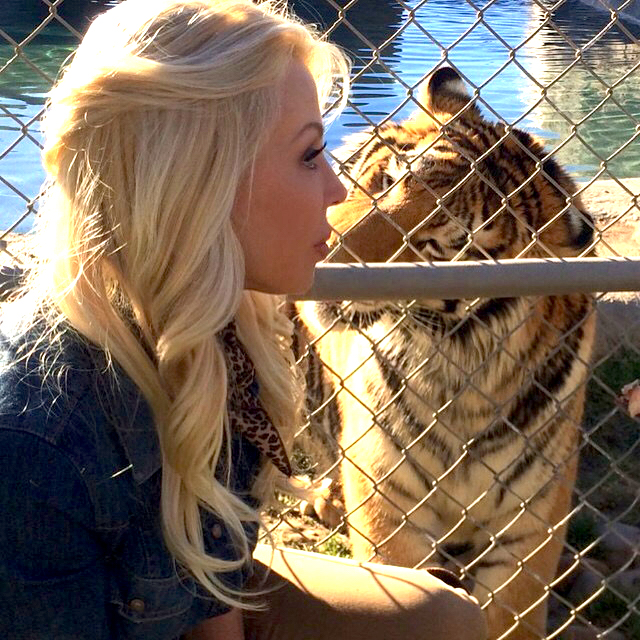

Meet Bobbi Brink, the founder and of this facility and learn more about this terrific private accredited sanctuary in our exclusive interview.
ANICIA: At one point you never allowed visitors to your facility.
Why did that change?
Bobbi: We’ve always had visitors, but back in the day it was on a one-on-one basis by appointment. Then we increased to once a month, then to two days a week, then three days a week and now we are up to four days a week for visits. We have never been open to the public, and still are not open to the public, because we are a membership-based organization. All visits are by appointment only at the scheduled times. We try to keep it as peaceful for the animals as we can. Unlike a zoo where the animals are not left alone and exposed to crowds all day every day, our visits occur Wednesday through Saturday once per day for two hours.
Can you please tell us the difference between “Accredited” and
“Non-Accredited” sanctuaries?
Accredited sanctuaries do not buy, sell, breed, or trade their animals. They do not allow direct contact and they do not offer exploitative opportunities, such as cub petting. The sole purpose of a sanctuary is to provide a lifetime home to the animals in their care. There are two accrediting organizations in the United States, the Global Federation of Animal Sanctuaries (GFAS) and the American Sanctuary Association (ASA). These two organizations set the standards of care from diet, to housing, fencing, and caging sizes. GFAS and ASA also ensure that any organization applying for accreditation has the proper finances available to care for the animals, strict safety policies and emergency plans in place, as well as a contingency plan for the animals in the event that something happens to the sanctuary owner.
This ensures the animals physical and psychological needs are met and the animals are able to thrive.
There are phony sanctuaries and phony accrediting bodies. If a facility calls themselves a “sanctuary” but buys, sells, breeds, or trades then they are not a sanctuary. It is so important to support true accredited sanctuaries, if you are looking to support an organization.
What are the top three rules by the federal government you have to follow to be in business?
The only federal authority we fall under is the USDA. Under USDA regulations, an individual or business in possession of an animal such as a lion, tiger, or bear must fall under one of three categories: Class A (research), Class B (breeder) or Class C (exhibit). Since we do not breed, and we are not a research facility, we are a Class C facility, meaning exhibit the animals as an educational facility. Believe it or not, if we did not have visitors to the sanctuary, we would not be held under any federal guidelines whatsoever (this is where the Big Cat and Public Safety Protection Act comes into play). For state jurisdiction we must obtain a permit from California Fish & Wildlife Agency. California is more strict than most states in the United States when it comes to owning animals such as lions, tigers, and bears- we must hold a permit to possess these animals which includes passing an inspection and providing proof of experience working with the particular species.
You have lions, tigers and bears in your facility.
Why those and are you open to others?
While our name says a lot, it doesn’t say it all. Unfortunately, we didn’t have room to add all the other animals we rescue such as bobcats, leopards, mountain lions, goats, horses, pigs, llamas, and much more. Our ranch is dedicated to the care and protection of all animals that have been neglected or abused.

-
Save
Anicia Bragg with a tiger

-
Save



















